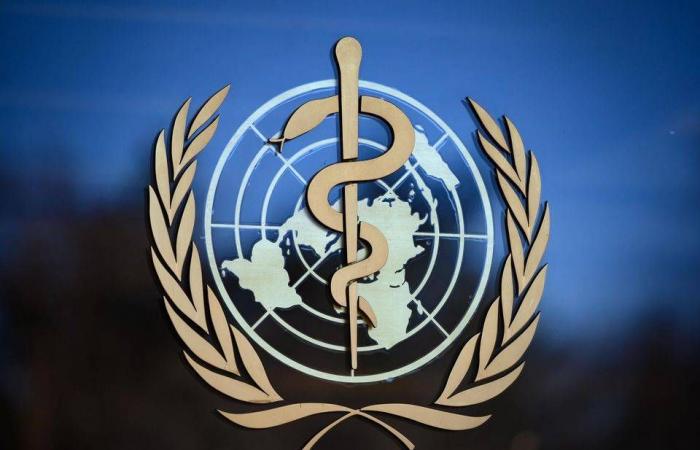
Every year in Europe, 2.7 million deaths are caused by smoking, alcohol, fossil fuels and processed foods, said the World Health Organization (WHO) this Wednesday June 12 in its report on the determinants sales of non-communicable diseases. She urges governments to impose stricter regulation of these products that are harmful to health and endanger health systems.
Business determinants of health refer to how business actors, their products and practices impact health. Some of these industries: tobacco, alcohol, agri-food and even fossil fuels deploy numerous strategies to hinder the implementation of policies relating to non-communicable diseases (cancers, respiratory and cardiovascular diseases, diabetes, etc.) caused by their products.
Dr Hans Henri P. Kluge, WHO Regional Director for Europe, said: “The tactics of these industries include exploiting vulnerable people through targeted marketing strategies, deceiving consumers and spreading false claims about the benefits of their products or their environmental certifications. »
Non-communicable diseases, leading cause of death in Europe
Thus, the report estimates that tobacco, fossil fuels, ultra-processed foods (UPF) and alcohol are responsible for more than 7,400 deaths every day in the 53 states of the WHO Europe region. Overall, these four industries cause approximately 2.7 million preventable premature deaths annually in the region, or approximately a quarter (24.5%) of all mortality.
The WHO report highlights the importance of recognizing and addressing commercial influences on public health, emphasizing that policy and regulatory actions are essential to reduce the harmful consequences of certain economic actors causing non-communicable diseases.
The activities of tobacco lobbies have had a significant impact by delaying the implementation of effective public health policies, minimizing tobacco taxes, and reducing restrictions on tobacco advertising. These lobbies are not limited to national activities, but also exert influence on international regulations. They seek to influence negotiations and decisions within international organizations such as the World Health Organization (WHO) and the Framework Convention on Tobacco Control (FCTC).
Despite the health risks, only a minority of European countries have implemented good measures in tobacco-free places, or adopted all the good practices in tobacco control set out in the WHO Framework Convention on tobacco control. tobacco control (FCTC). Efforts to make products less attractive through plain packaging, or to reduce accessibility through tax increases, are therefore often unsuccessful. This is particularly the case for alcohol or even for the labeling of foods using nutriscores.[1]
The WHO recalls that tobacco is responsible for more than a million deaths per year in Europe, or around 10% of all deaths in the region attributable to this risk factor alone. Fossil fuels are also a significant factor, causing nearly 600,000 deaths each year, accounting for about 5% of all deaths. Alcohol is responsible for more than 400,000 deaths annually. Finally, more than 350,000 deaths are attributed to excessive consumption of processed meat, sugary drinks, and fatty and salty foods.
Similar business practices
These business actors highlighted in the report engage in nearly identical practices to shape structural, policy, and information environments to their advantage. Their main goals are to generate profits, maximize product sales and stimulate consumption. These industries spend considerable resources to oppose public health policies, they strive to disseminate scientific data that is favorable to them while keeping conflicts of interest silent. Their actions reinforce social inequalities in health. Finally, they externalize the costs linked to the damage caused by their products on human and environmental health and they considerably increase the burden of non-communicable diseases in health systems.
Towards the implementation of stricter regulations
The report’s recommendations urge European governments to impose stricter regulations on the marketing of products harmful to health. They call for limiting monopolistic practices and protecting public policies from the lobbying of these powerful actors, and for prioritizing public health over the sectional interests of these economic agents. Regulatory action is even more crucial in an era of globalization, where international trade agreements and transnational economic interests can hamper efforts to protect public health.
“ For too long, we have viewed risk factors as primarily about individual choices. We need to reframe the problem as a systemic problem, where policy must counter ‘environments of overconsumption’, restrict marketing and stop interference in policymaking. » recalled Frank Vandenbroucke, Belgian Deputy Prime Minister.
Article 5.3 of the FCTC aims to protect public health policies from the influence of the tobacco industry. It recommends limiting and making transparent interactions with this industry, rejecting non-binding partnerships, avoiding conflicts of interest, ensuring transparency of necessary interactions and refusing funding and donations from the industry. tobacco. This approach can be applied to combating noncommunicable diseases by protecting public health policies from harmful influences, maintaining transparency, avoiding conflicts of interest, and withholding funding from industries contributing to NCDs.
Finally, the crucial role of civil society in the adoption and implementation of public policies is recalled. Thus some countries have obtained positive results despite strong opposition from industry. Recently, national and international mobilization of civil society organizations contributed to the adoption of tobacco legislation in Slovenia. In Estonia, a coalition of health sector partners, including dentists, nurses and doctors, helped advance legislation on taxing sugary drinks.
©Tobacco Free Generation
D.T.
[1] Anna Bawden, Denis Campbell, Tobacco, alcohol, processed foods and fossil fuels ‘kill 2.7 million years in Europe’, The Guardian, published June 12, 2024, accessed June 12, 2024
National Committee Against Smoking |





